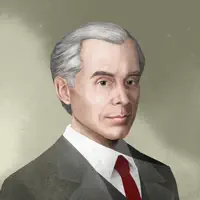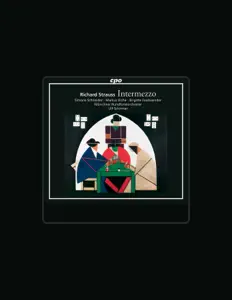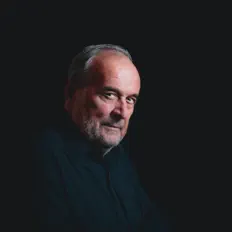
Classical
Germany
Richard Strauss
Κορυφαία τραγούδια από Richard Strauss
Άλλα άλμπουμ από Richard Strauss
Σχετικά με τον/την Richard Strauss

Ιδιαίτερη πατρίδα
Munich, Bavaria, Germany
Τόπος γέννησης
June 11, 1864
Είδος
Classical
Born in Munich in 1864, Richard Strauss was the only child of one of the finest horn players in Europe. At first conditioned by his father’s conservative musical tastes, Strauss then rebelled and became a passionate admirer of Wagner’s radical Romanticism. The symphonic poem Don Juan (1888) initiated a sequence of brilliant orchestral works that established Strauss as one of the leading composer-conductors of his era. In 1894 he married Pauline de Ahna, whose soprano voice was a lifelong inspiration, although she soon retired from her singing career to bring up the couple’s son Franz. Strauss’ third opera, Salome (1905), was a scandal-generating success that he quickly followed up with the wildly modernist Elektra (based on Sophocles’ play). Then a change of approach produced the sumptuous and lyrical Der Rosenkavalier (The Rose-Bearer). Another 10 operas followed at regular intervals, including Die Frau ohne Schatten (The Woman Without a Shadow) and Arabella. Although Strauss resigned from a cultural post in Hitler’s Nazi government in 1935 after only two years, the association tarnished his international reputation for decades afterward. In the years before his death in 1949, he produced late operatic masterpieces in Daphne and Capriccio, and came up with some of his most radiant music in his Four Last Songs for soprano and orchestra.
Με επιρροές από τον/την Richard StraussΟ/Η Richard Strauss έχει επηρεάσει τη μουσική του/της Bielfield, Béla Bartók, Norberto Valdes και άλλων.
Παρόμοιο περιεχόμενο με τον/την: Richard Strauss
Ανακαλύψτε περισσότερη μουσική και καλλιτέχνες παρόμοιους με τον/την Richard Strauss, όπως τους Munich Reichssenders Orchestra, Tivoli Orchestra, Brenden Patrick Gunnell






















![Ακούστε το άλμπουμ Momentum [2]: Korngold, Strauss από Liya Petrova, Alexandre Kantorow, Royal Philharmonic Orchestra & Duncan Ward Ακούστε το άλμπουμ Momentum [2]: Korngold, Strauss από Liya Petrova, Alexandre Kantorow, Royal Philharmonic Orchestra & Duncan Ward](https://is1-ssl.mzstatic.com/image/thumb/Music211/v4/13/d4/15/13d41522-156e-9ecd-c78f-524b3881fa29/3760127226901_cover.jpg/276x276bb.webp)









































































































